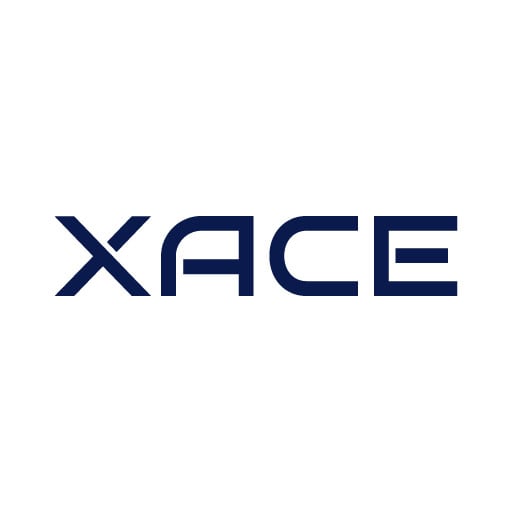The 2021 Interstate Treaty on Games of Chance (hereinafter referred to by its German acronym, "GlüStV 2021," is not expected to enter into force until 1 July 2021 and still requires ratification by the German Länder. In a "circular resolution" (Umlaufbeschluss) dated 9 September 2020, the heads of the state and senate chancelleries of the German Länder agreed that administrative practice with regard to the organisation of online gaming without official authorisation should already now be based on the 4th Interstate Treaty on the New Regulation of Gaming (namely GlüStV 2021). Proceeding on the basis of the legal opinion of the German Länder, the organisation and operation of online gaming without observing technical guidelines will mean that such providers are deemed to be unreliable beginning on 15 October 2020, with such providers then being excluded from receiving an online gaming licence for the operation of "virtual slot machines" or "online casino games." Such providers may rest assured, however: The circular resolution does not change the substantive legal situation. Just as little does it change the fact that in the "probable future" - to use the terminology of the circular resolution - GlüStV 2021 will be contrary to EU law.
1 Content of the circular resolution
In section 4, the circular resolution establishes with a view to future official administrative action that the organisation of online gaming without official permission will not be cited as a reason for deeming a provider to be unreliable if the aforementioned technical guidelines are observed:
"For the continued validity of the sports betting licence and reliability to be assumed in future authorisation and licensing procedures, it is generally deemed to not be detrimental if licence holders, in addition to permitted games of chance, exclusively offer virtual slot machine games and online poker within the meaning of the draft GlüStV 2021 and limit this offer to the extent allowed by law in accordance with the draft GlüStV 2021, and in doing so actually implement all future requirements for player protection and combating gambling addiction which can already be technically implemented at present. Pursuant hereto, in order to enable technical implementation, a period set to expire on 15 October 2020 is being granted. [...] An offer of one of the aforementioned games of chance [i.e. online gaming outside the scope of the technical guidelines] is to generally lead to the revocation of the sports betting licence and to the provider being deemed unreliable in future licensing or authorisation procedures."
GlüStV 2021 especially does not deem a supplier to be unreliable based on its past conduct, and only becomes relevant with regard to the possible future licensing procedure and the granting of authorisation under GlüStV 2021 as a result of the circular resolution: the circular resolution lays down, for example, that providers who do not adhere to the technical guidelines are to be classified as "unreliable" and therefore, based on GlüStV 2021, cannot be granted a licence or authorisation to organise any kind of gaming beginning 1 July 2021 (the "bad actor" clause). The provisions forwarded in the circular resolution (interpreting provisions) spell out in more detail the indeterminate legal concept of "reliability", which is relevant to de facto all the gaming laws of the Länder with regard to the granting of authorisations and licences, to the effect that certain conduct which led to providers being deemed to be unreliable prior to the circular resolution is not detrimental to classification as "reliable," either.
Which requirements are considered to be already technically feasible was laid down in detail in joint guidelines issued by the supreme gambling supervisory authorities of the German Länder with regard to virtual slot machine and online poker services on the basis of the circular resolution adopted by the heads of the Länder state and senate chancelleries from 8 September 2020 and dated 30 September 2020, which was published on the website of the Joint Gaming Office (Gemeinsame Geschäftsstelle Glücksspiel) a few days before it entered into force. These guidelines include a monthly deposit limit of € 1,000 for gamers, the establishment of a panic button for 24-hour blocking, mandatory "reality checks" after one hour of gaming on the Internet, a ban on parallel gaming and - beginning 15 December 2020 - a minimum gaming time of at least five seconds and a maximum stake of one Euro per game in the case of virtual slot machines.
With regard to online gaming, section 5 of the circular resolution also provides for the administration to suspend enforcement against those providers of online gaming without official authorisation who comply with the technical guidelines for the organisation of virtual slot machines and online poker laid down in GlüStV 2021 and which are already enforceable:
"The aforementioned principles are also to be taken into account when exercising discretion as to which providers of illicit gambling are to be challenged within the limits of the capacities that are available. Until 30 June 2021, enforcement against illicit gaming services is therefore to be concentrated on those operators which are likely to seek to evade likely future regulation. With regard to sports betting, virtual slot machine, online poker and online casino games, such providers must be deemed to be
- all sports betting operators who have not yet applied for a licence
- all operators who continue to offer virtual slot machine games and/or online poker after 15 October 2020 without complying with all the relevant requirements laid down in GlüStV 2021 which are not still technically impossible
- all providers which continue to offer online casino games that fall under the provisions of § 22c GlüStV 2021 after 15 October 2020 (roulette, black jack, etc.)
The Länder will be taking action against these providers of illicit gaming.
In the current legal situation, enforcement against the organisation of illegal gaming is subject to discretionary powers, i.e. the competent authorities must exercise their discretionary latitude in each individual case in deciding whether enforcement is proportionate. Under section 5, the discretion of authorities with regard to enforcement measures against illegal gaming is being exercised by refraining from enforcement against operators who organise illegal gaming while complying with technical guidelines.
2 The circular resolution is merely an administrative provision
The circular resolution is not a personal general order within the meaning of § 35 p. 2 Var. 1 of the German Administrative Procedures Act (VwVfG) because it lacks the regulatory nature required to be a general ruling. Provisions are deemed to be a regulation if the measure being taken by the authority is aimed at establishing a binding legal consequence - i.e. if the measure directly establishes, amends, revokes, lays down with binding effect or negates the rights of the persons concerned. The suspension of enforcement does not affect the rights of gaming operators, in particular because the suspension of enforcement does not constitute official authorisation. However, the stipulation of the circular resolution that the organisation of online gaming is not to be deemed to be detrimental to the reliability of providers if the technical guidelines mentioned in the circular resolution are observed does not directly affect their rights, either. This is because the circular resolution - as expressly emphasised in the concluding remarks of the Joint Guidelines of the supreme gambling supervisory authorities of the German Länder with regard to the offer of virtual slot machine and online poker services on the basis of the circular resolution of the heads of the state and senate chancelleries from 8 September 2020 and dated 30 September - does not establish any entitlement to the granting of a licence or prejudice for subsequent licensing procedures. The circular resolution therefore does not change the legal positions of providers, and only serves as the basis for administrative acts which can be issued on the foundations of currently applicable gaming laws of the Länder in connection with the circular resolution.
Since the circular is primarily addressed to the public authorities and has no direct external effect, it is not deemed to be a legal regulation, but merely an administrative regulation. Administrative regulations are based on the "power and authority to administrate an area of business" and are therefore intended for public authorities to guide their administrative actions. That is the exactly the case with the circular resolution: The very wording of the circular and the joint guidelines make it clear that the addressees of the circular are subordinate authorities: At no point is the circular resolution directly addressed to providers. It is also important that the circular does not have any direct binding effect on the outside world. The circular resolution only affects the organisers of online gaming to the extent that they do not have to fear enforcement and subsequently being deemed to be unreliable due to the organisation of online gaming in subsequent authorisation and licensing procedures if they comply with the technical guidelines specified in the joint guidelines. The circular resolution does not alter the fact, however, that from the point of view of the German Länder, the organisation of online gaming is not permitted, nor is it capable of being authorised in the current legal situation. Although it de facto privileges providers who comply with the technical guidelines, it does not grant them a legal position that privileges them.
Part 2 of Dr. Nik Sarafi's article will appear on the Gambling Insider website on Friday.












































